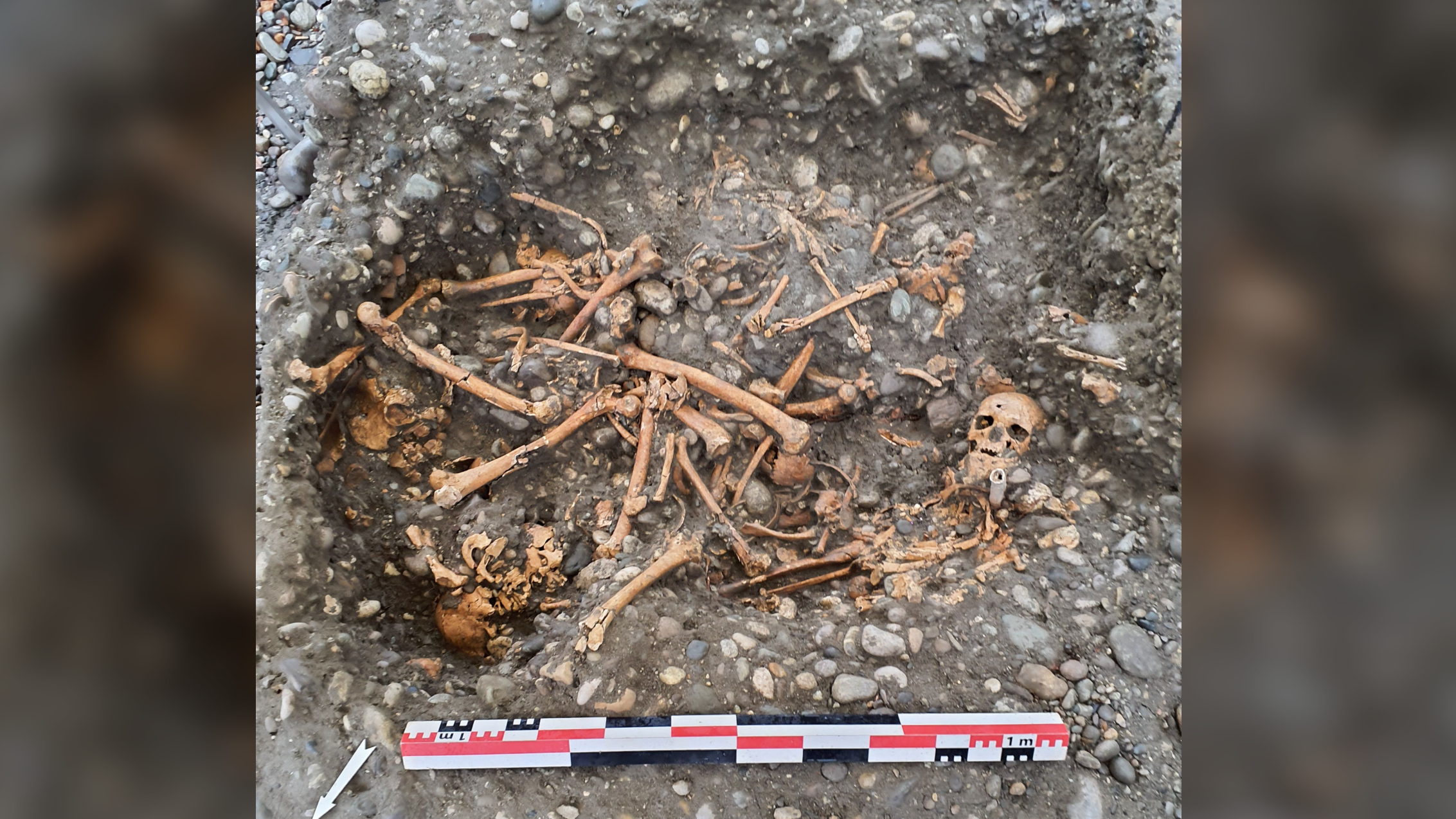Science News: Recent scientific discoveries and expert analysis
Read the latest science news and recent scientific discoveries on Live Science, where we've been reporting on groundbreaking advances for over 20 years. Our expert editors, writers and contributors are ready to guide you through today's most important breakthroughs in science with expert analysis, in-depth explainers and interesting articles, covering everything from space, technology, health, animals, planet Earth, and much more.

Explainers | Everything you need to know about the science news that matters.

Science Spotlight | Shining a light on new science transforming our world.
Latest news

James Webb telescope uncovers a new mystery: A broiling 'hell planet' with an atmosphere that shouldn't exist
By Tia Ghose published
James Webb finds a hot planet that is tidally locked with its parent star, is coated with a thick atmosphere of volatile chemicals.
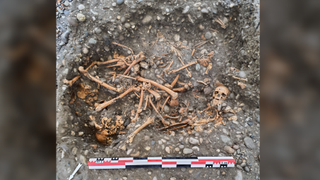
16th-century gallows and dozens of skeletons discovered in France
By Kristina Killgrove published
Archaeologists have identified a 16th-century gallows structure and nearly a dozen mass burial pits in Grenoble, France.

'Necessary for the future of humankind': Who was honored at the first-ever Global Space Awards?
By Harry Baker published
The winners of the inaugural Global Space Awards were recently announced at a star-studded ceremony at London's Natural History Museum. The event championed innovation and sustainability, while also celebrating the life of a late NASA astronaut.
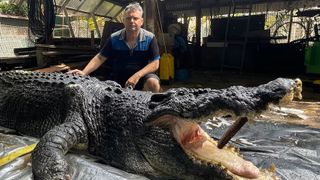
Cassius the giant crocodile died from sepsis after 40-year-old dormant infection burst from 'abscess,' necropsy reveals
By Sascha Pare published
Cassius was an 18-foot-long saltwater crocodile living in captivity in Marineland Crocodile Park in Australia. He died last year at the age of about 120, and we finally know why.

Giant structure discovered deep beneath Bermuda is unlike anything else on Earth
By Stephanie Pappas published
A thick layer of more than 12 miles of rock may explain why Bermuda seems to float above the surrounding ocean.
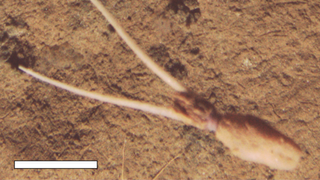
'Very novel and very puzzling': Unknown species of squid spotted burying itself upside down, pretending to be a plant
By Kenna Hughes-Castleberry published
A new study reveals an unknown species of whiplash squid burying itself upside down in the deep sea — a first-of-its-kind behavior for cephalopods.
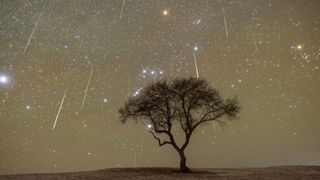
See up to 150 'shooting stars' per hour this weekend as the Geminid meteor shower reaches its stunning peak
By Jamie Carter last updated
The Geminid meteor shower peaks this weekend! The Geminids peak overnight on Dec. 13 and 14, when up to 150 "shooting stars" per hour will rain down on Earth in a near-moonless night sky.

New 'DNA cassette tape' can store up to 1.5 million times more data than a smartphone — and the data can last 20,000 years if frozen
By Fiona Jackson published
Scientists have discovered that over half a mile of DNA could hold over 360,000 terabytes of data.

'A scale almost too big to imagine': Scientists spot monster black hole roaring with winds at more than 130 million mph
By Joanna Thompson published
A black hole 30 million times the mass of the sun has produced winds one-fifth the speed of light, stunning scientists.
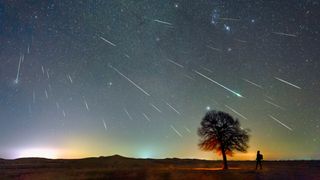
Today's biggest science news: Second earthquake hits Japan | Geminids to peak | NASA loses contact with Mars probe
By Patrick Pester, Tia Ghose last updated
Friday, Dec. 12, 2025: Your daily feed of the biggest discoveries and breakthroughs making headlines.

'They had not been seen ever before': Romans made liquid gypsum paste and smeared it over the dead before burial, leaving fingerprints behind, new research finds
By Kristina Killgrove published
Fingerprints on a Roman burial hold new clues to an unusual liquid gypsum funeral ritual.
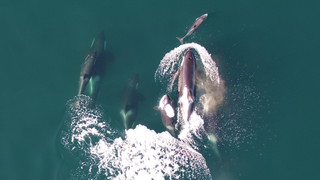
Killer whales are teaming up with dolphins on salmon hunts, study finds — but not everyone agrees
By Chris Simms published
There are eye-opening claims that orcas and dolphins are working together on salmon hunts and sharing food — but not everyone is convinced.

Rarrr! James Webb telescope spots 'monster stars' leaking nitrogen in the early universe
By Elizabeth Howell published
Researchers using the James Webb Space Telescope spotted huge stars leaking nitrogen in an early galaxy, hinting that such 'monster stars' might have been the source of ancient supermassive black holes.

Time moves faster on Mars, posing new challenges to crewed missions
By Deepa Jain published
Clocks on Mars tick faster by about 477 microseconds each Earth day, a new study suggests. This difference is significantly more than that for our moon, posing potential challenges for future crewed missions.

Insomnia and anxiety come with a weaker immune system — a new study starts to unravel why
By Kamal Nahas published
People with anxiety or insomnia tend to have weaker immunity. The decline of a key immune cell may be a culprit.

Breakthrough 3D wiring architecture enables 10,000-qubit quantum processors
By Tristan Greene published
The novel 3D wiring architecture and chip fabrication method enable quantum processing units containing 10,000 qubits to fit in a smaller space than today's 100-qubit chips.

When does winter start? Your guide to the 2025 winter solstice.
By Jamie Carter published
Astronomical winter begins Sunday, Dec. 21 in the Northern Hemisphere. Here's how the solstice works.

Stunningly preserved Roman-era mosaic in UK depicts Trojan War stories — but not the ones told by Homer
By Skyler Ware published
A newfound mosaic draws inspiration from "Phrygians," a play by the Athenian playwright Aeschylus that survives only in bits and pieces.
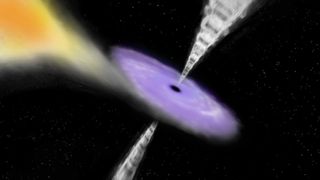
Scientists spot 2 black holes that took turns slaughtering 1 unlucky star
By Paul Sutter published
A strange X-ray signal spotted decades ago may be the result of a star that got attacked by two black holes, one after the other.

Amazon rainforest is transitioning to a 'hypertropical' climate — and trees won't survive that for long
By Sascha Pare published
The Amazon rainforest currently has a few days or weeks of hot drought conditions per year, but researchers say this could increase to 150 days per year by 2100.
Get the world’s most fascinating discoveries delivered straight to your inbox.



